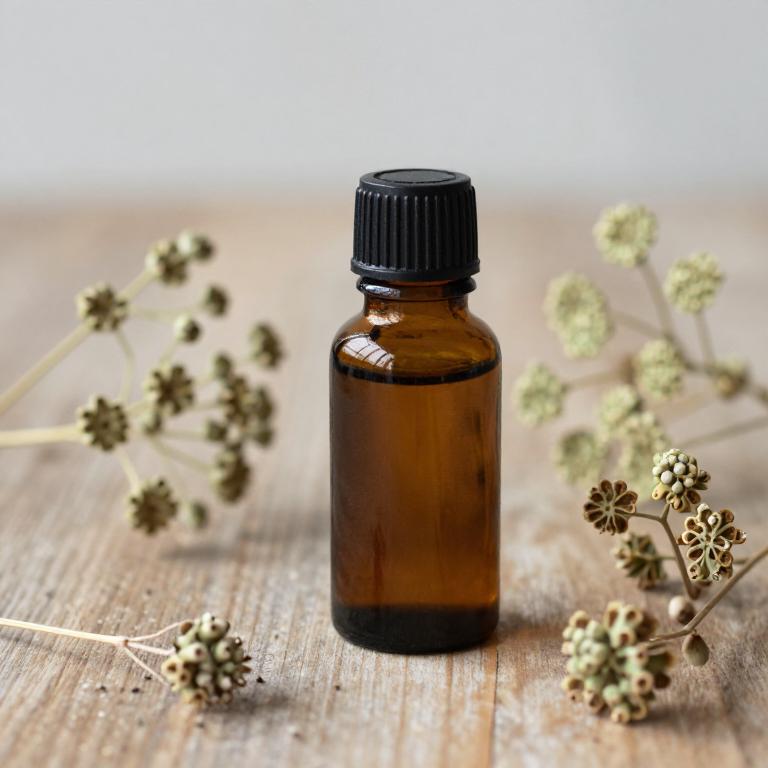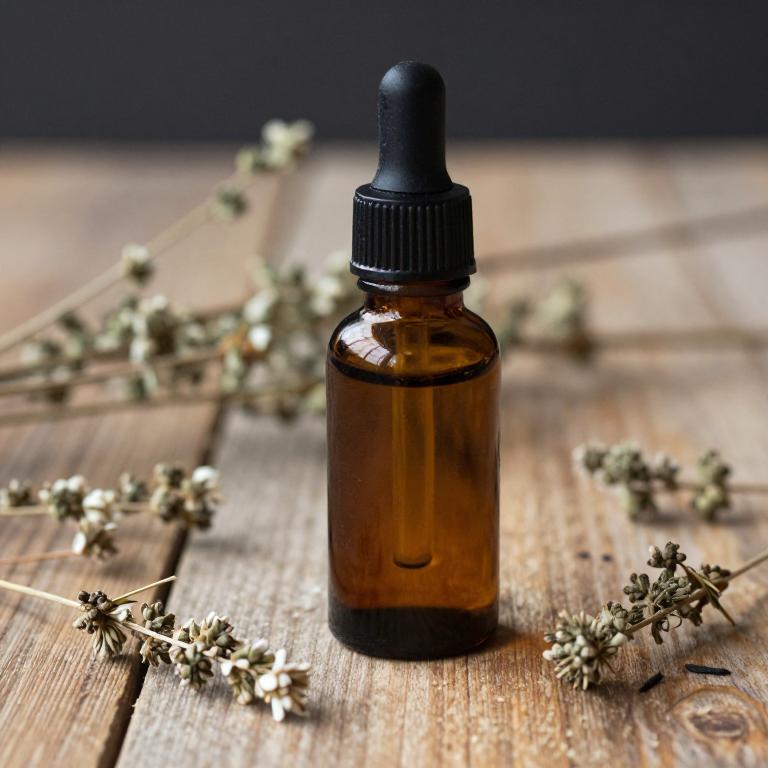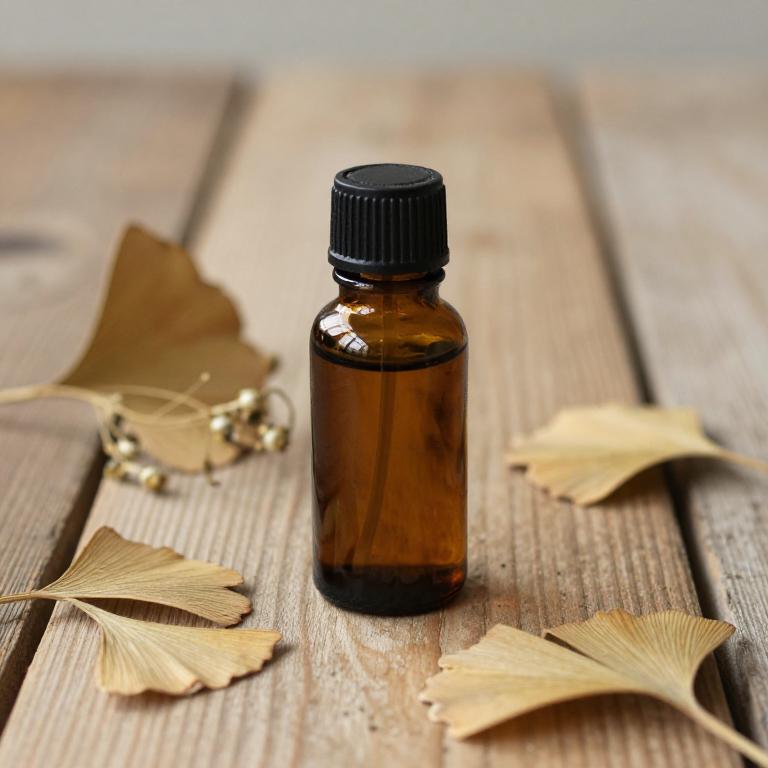10 Best Herbal Essential Oils For Altitude Sickness

Herbal essential oils, such as peppermint, ginger, and eucalyptus, are often used to alleviate symptoms of altitude sickness due to their potential to improve circulation and ease breathing.
These oils can be diffused, inhaled, or applied topically to help reduce nausea, headaches, and fatigue commonly associated with high-altitude exposure. Peppermint oil is particularly effective in stimulating the respiratory system and providing a cooling effect, while ginger oil is known for its ability to soothe gastrointestinal discomfort. However, it is important to dilute these essential oils properly and consult with a healthcare professional before use, especially for individuals with sensitive skin or existing health conditions.
Overall, while essential oils may offer some relief, they should not replace medical advice or treatment for severe altitude sickness.
Table of Contents
- 1. Salvia (Salvia officinalis)
- 2. Rosemary (Rosmarinus officinalis)
- 3. Valerian (Valeriana officinalis)
- 4. Peppermint (Mentha piperita)
- 5. Black pepper (Piper nigrum)
- 6. Catnip (Nepeta cataria)
- 7. Ceylon cinnamon (Cinnamomum verum)
- 8. Turmeric (Curcuma longa)
- 9. English lavender (Lavandula angustifolia)
- 10. Ginkgo (Ginkgo biloba)
1. Salvia (Salvia officinalis)

Salvia officinalis, commonly known as sage, contains essential oils that have been traditionally used for their medicinal properties, including potential benefits for altitude sickness.
The essential oils derived from sage, such as thujone and camphor, may help alleviate symptoms like dizziness and shortness of breath by improving circulation and oxygen utilization in the body. While scientific research on its specific efficacy for altitude sickness is limited, some studies suggest that aromatic compounds in sage oil can stimulate the nervous system and enhance respiratory function. Many climbers and hikers use sage essential oils in diffusers or inhalers to support adaptation to high altitudes.
However, it is important to consult a healthcare professional before using these oils, as they may interact with other medications or conditions.
2. Rosemary (Rosmarinus officinalis)

Rosmarinus officinalis, commonly known as rosemary, is a herb whose essential oil has been traditionally used for its stimulating and aromatic properties.
While it is not a direct treatment for altitude sickness, some studies suggest that its components may help improve circulation and reduce symptoms like fatigue and headaches, which are common at high altitudes. The essential oil of rosemary contains compounds such as camphor and pinene, which are believed to support respiratory function and mental clarity. However, it is important to note that rosemary essential oil should not replace medical advice or treatment for altitude sickness, and individuals should consult a healthcare professional for proper management.
Overall, while rosemary essential oil may offer some supportive benefits, it is not a proven remedy for altitude sickness and should be used with caution.
3. Valerian (Valeriana officinalis)

Valeriana officinalis, commonly known as valerian, is a medicinal plant whose essential oil has been traditionally used for its calming and sedative properties.
While it is more widely recognized for its role in treating anxiety and sleep disorders, some studies suggest that valerian's essential oil may also help alleviate symptoms of altitude sickness by promoting relaxation and reducing stress, which are common during high-altitude exposure. The oil contains compounds such as valerenic acid and sesquiterpenes, which may support the body's adaptation to lower oxygen levels. However, it is important to note that valerian essential oil is not a primary treatment for altitude sickness and should be used as a complementary therapy under professional guidance.
Further research is needed to fully understand its efficacy and safety in this specific context.
4. Peppermint (Mentha piperita)

Mentha piperita, commonly known as peppermint, is a popular herb whose essential oil has been traditionally used for its invigorating and cooling properties.
The essential oil of peppermint contains high concentrations of menthol, which can help alleviate symptoms such as nausea, headaches, and fatigue associated with altitude sickness. When inhaled or applied topically, peppermint oil may stimulate blood circulation and ease respiratory discomfort, making it a potential natural remedy for those ascending to high altitudes. However, it is important to consult a healthcare professional before using essential oils, especially for individuals with respiratory conditions or sensitivities.
While some studies suggest that peppermint oil may offer relief, more research is needed to confirm its efficacy and safety in treating altitude sickness.
5. Black pepper (Piper nigrum)

Piper nigrum, commonly known as black pepper, contains essential oils that have been traditionally used for their warming and stimulating properties.
These essential oils, derived from the dried fruit of the pepper plant, may help alleviate symptoms of altitude sickness by improving circulation and boosting oxygen uptake in the body. The active compounds in black pepper essential oil, such as piperine, are believed to enhance metabolic processes and reduce the effects of hypoxia at high altitudes. While there is limited scientific research specifically on its use for altitude sickness, some practitioners suggest it as a complementary therapy.
As with any herbal remedy, it is advisable to consult a healthcare professional before using Piper nigrum essential oils for altitude-related conditions.
6. Catnip (Nepeta cataria)

Nepeta cataria, commonly known as catnip, contains essential oils that have been traditionally used for their calming and digestive properties.
While not a primary treatment for altitude sickness, some studies suggest that the essential oils of nepeta cataria may help alleviate symptoms such as nausea and anxiety, which are commonly experienced at high altitudes. The oils, particularly those containing nepetalactone, are believed to support respiratory function and reduce stress, potentially offering some relief to those suffering from altitude-related discomfort. However, more scientific research is needed to confirm its efficacy in treating altitude sickness specifically.
As with any herbal remedy, it is advisable to consult a healthcare professional before using nepeta cataria essential oils for altitude-related issues.
7. Ceylon cinnamon (Cinnamomum verum)

Cinnamomum verum, commonly known as true cinnamon, contains essential oils that have been explored for their potential therapeutic benefits, including possible relief from altitude sickness.
The essential oils derived from the bark of this plant contain compounds such as cinnamaldehyde and eugenol, which possess antioxidant and anti-inflammatory properties. Some studies suggest that these oils may help in reducing oxidative stress and improving blood flow, which could be beneficial at high altitudes where oxygen levels are lower. While there is limited scientific evidence directly linking cinnamon essential oils to the treatment of altitude sickness, some individuals use them as a complementary remedy during altitude exposure.
It is important to consult a healthcare professional before using any essential oils, especially at high altitudes, to ensure safety and effectiveness.
8. Turmeric (Curcuma longa)

Curcuma longa, commonly known as turmeric, is a traditional herbal plant that has been used for centuries in Ayurvedic and Chinese medicine for its anti-inflammatory and antioxidant properties.
While curcuma longa is well-known for its rhizome, its essential oils derived from the plant have also been explored for their potential therapeutic benefits, including support for altitude sickness. The essential oils of curcuma longa contain compounds such as curcuminoids, which may help in reducing oxidative stress and inflammation, both of which are common in high-altitude environments. Some preliminary studies suggest that these essential oils might aid in alleviating symptoms such as headaches and fatigue associated with altitude sickness.
However, more research is needed to fully understand their efficacy and safety in this context.
9. English lavender (Lavandula angustifolia)

Lavandula angustifolia, commonly known as English lavender, is widely used in aromatherapy for its calming and soothing properties.
Its essential oil contains compounds such as linalool and linalyl acetate, which have been shown to help alleviate stress and anxiety, common symptoms associated with altitude sickness. While there is limited direct scientific evidence linking lavender oil to the prevention or treatment of altitude sickness, some studies suggest that its anti-inflammatory and vasodilatory effects may support overall respiratory and circulatory health at high altitudes. Many practitioners recommend using lavender essential oil in diffusers or through topical application to promote relaxation and ease the physiological strain of ascending to higher elevations.
However, it is important to consult with a healthcare professional before using lavender oil, especially for individuals with pre-existing medical conditions or those taking medications.
10. Ginkgo (Ginkgo biloba)

Ginkgo biloba herbal essential oils are derived from the leaves of the ginkgo tree and are known for their antioxidant and circulatory benefits.
While primarily used for cognitive enhancement and memory support, some traditional practices suggest that ginkgo biloba may help improve blood flow and oxygenation, which could be beneficial for individuals experiencing altitude sickness. However, it is important to note that there is limited scientific evidence specifically supporting the use of ginkgo biloba essential oils for altitude sickness. As with any herbal remedy, it should be used with caution and in consultation with a healthcare professional, especially at high altitudes where medical conditions can develop rapidly.
Overall, while ginkgo biloba may offer general health benefits, its effectiveness for altitude sickness remains unclear and requires further research.